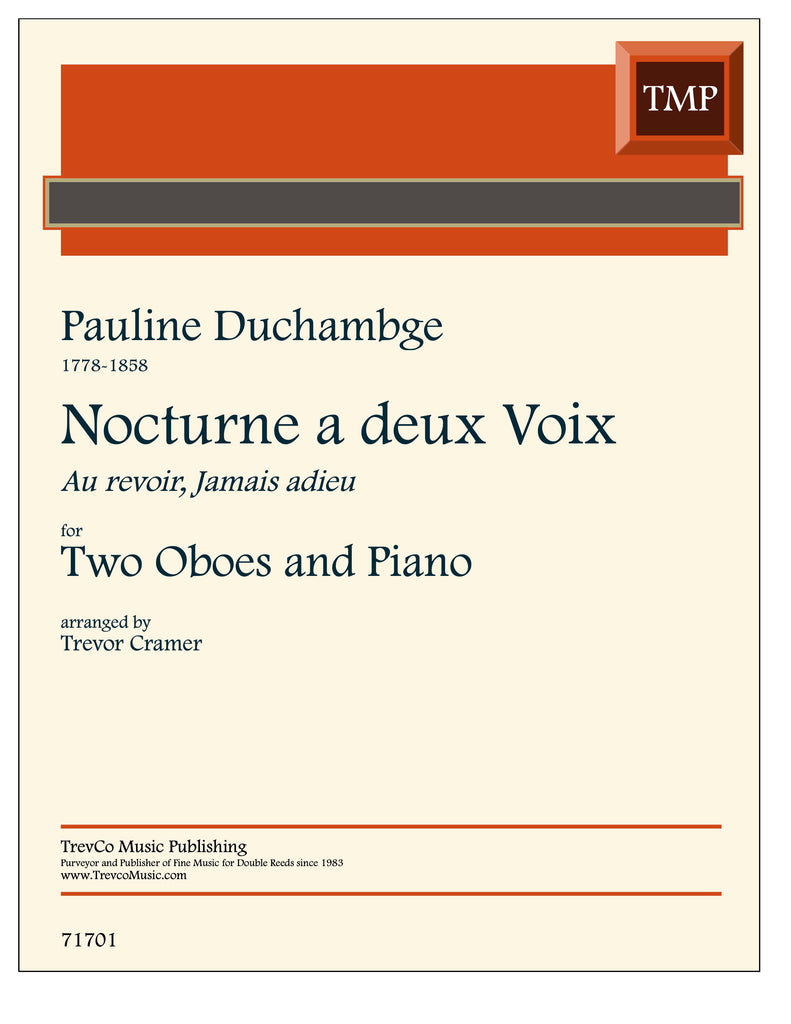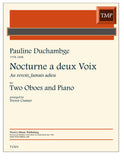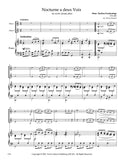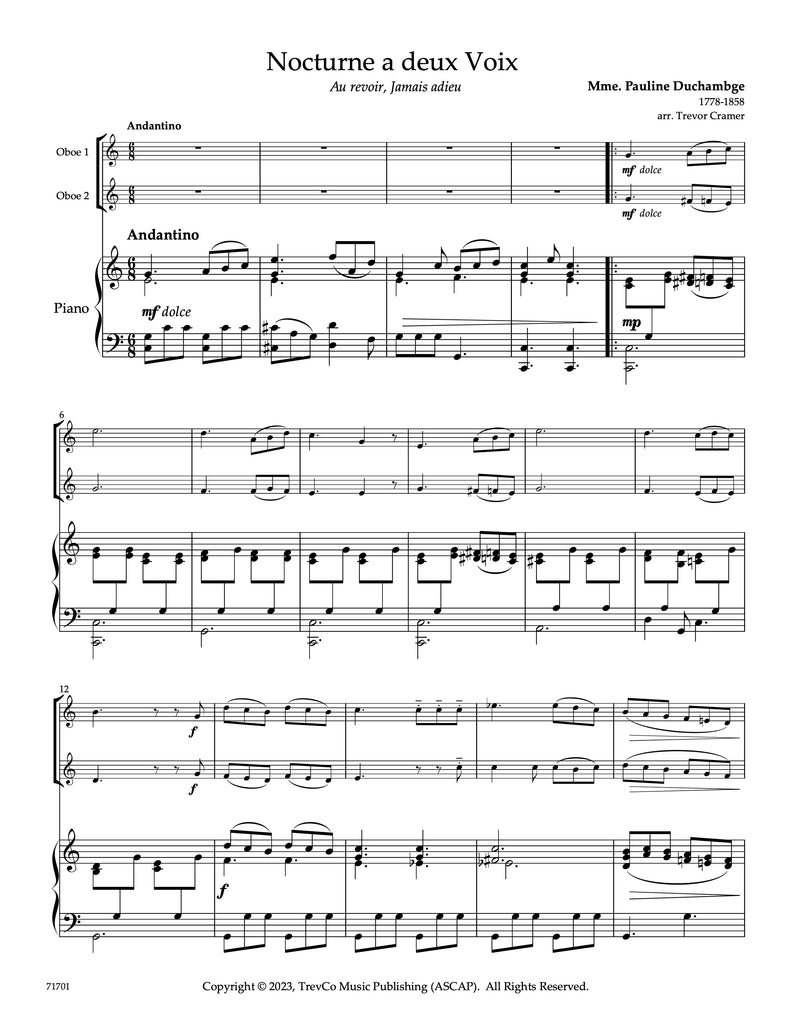Nocturne a deux - 2OB/PN
Composer: Duchambge, Pauline
Publisher: TrevCo
Edition: 71701
$8.00
Nocturne a deux "Au revoir, Jamais adieiu"
for two oboes and piano
by Pauline Duchambge (1778- 1858) - French composer
This arrangement for two voices and piano works well for two instruments of equal color, as their dialogue, both as one and separate, reflects on many of the virtues expressed by the composer above.
Pauline Duchambge (Montet) was born in Martinique, the daughter of a noble family. She was taken to Paris, where she received a convent education and studied the piano from composer and author Jean-Baptiste Desormery, son of the famous comic opera actor and composer Léopold-Bastien Desormery. Pauline left the convent in 1792 and married Baron Duchambge in 1796. In 1798 at the age of 20, she lost both her parents and with them the family fortune. Soon afterwards she was divorced.
It was after these events that Duchambge's musical education began in earnest. She studied harmony and composition with Daniel Auber and Luigi Cherubini (who wrote several compositions for her) as well as piano and composition with Jan Ladislav Dussek. In 1815, Duchambge met the French poet and novelist, Marceline Desbordes-Valmore, beginning a lifelong friendship and collaboration, documented by many lengthy correspondences and a number of songs by Duchambge on Debordes-Valmore's texts. Duchambge also composed music to texts and romances of other female authors such as Mme Amble Tastu and Mme Emile De Girardin. Pauline Duchambge wrote over three hundred romances, a very popular genre in the nineteenth century. Auber deposited three hundred of Duchambge's songs in the library of the Paris Conservatoire. In addition to songs, Duchambge wrote a few piano pieces.5
Duchambge had a difficult life, struggling with poverty, delicate health, and the disenchantments of love; her music expresses her emotions. She commented: "Love, it is life! but a life full of troubles, illusions, deceptions, repentance, discouragements.... "
Duchambge chose texts that were often pastoral and expressed love sentiments typical of the early-nineteenth century. The music is strophic and usually without refrains. Her melodies are often ornamented with grace notes and some accents, and there are a few dynamic markings. The harmony has an interesting variety of chords, containing modulations and secondary dominants. Duchambge uses major and minor modes in the same song to reflect changing moods. The piano accompaniments use ostinatos, arpeggios, and solid chords.





Share this item: